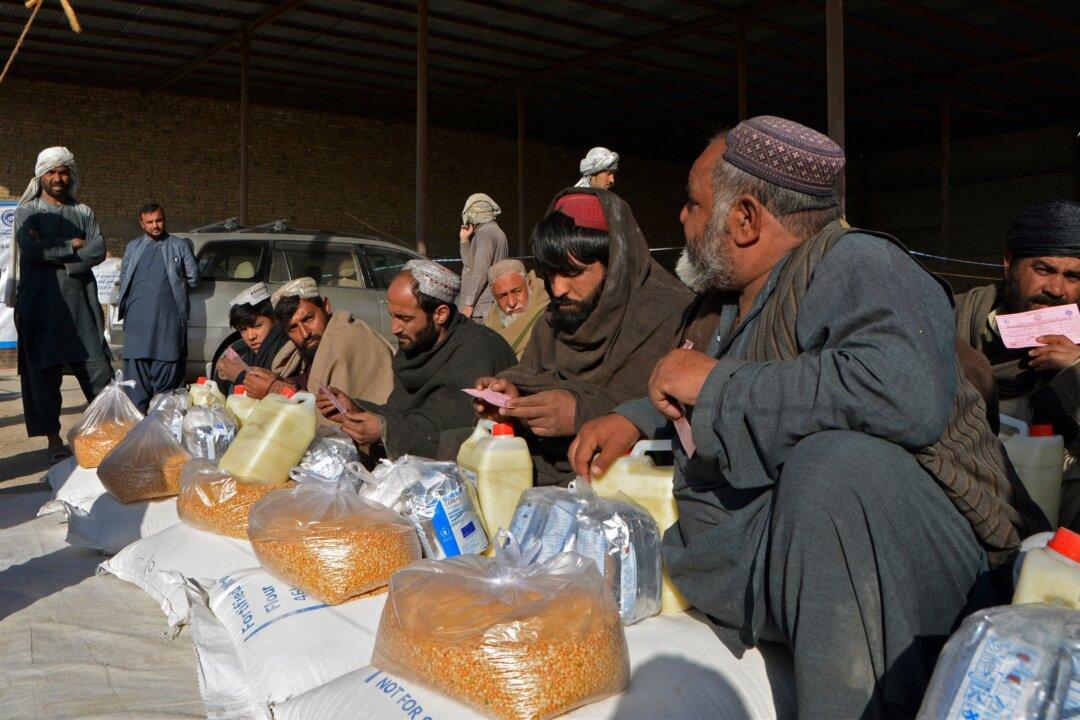The United States is donating approximately $308 million in humanitarian aid to Afghanistan and will also contribute additional COVID-19 vaccine doses, a White House spokesperson confirmed on Tuesday.
National Security Council (NSC) spokeswoman Emily Horne said in a government statement that the United States remains “the single largest donor of humanitarian aid in Afghanistan” and the latest donation brings American aid for the impoverished nation and Afghan refugees in the region to nearly $782 million since the chaotic ending of the 20-year war.





